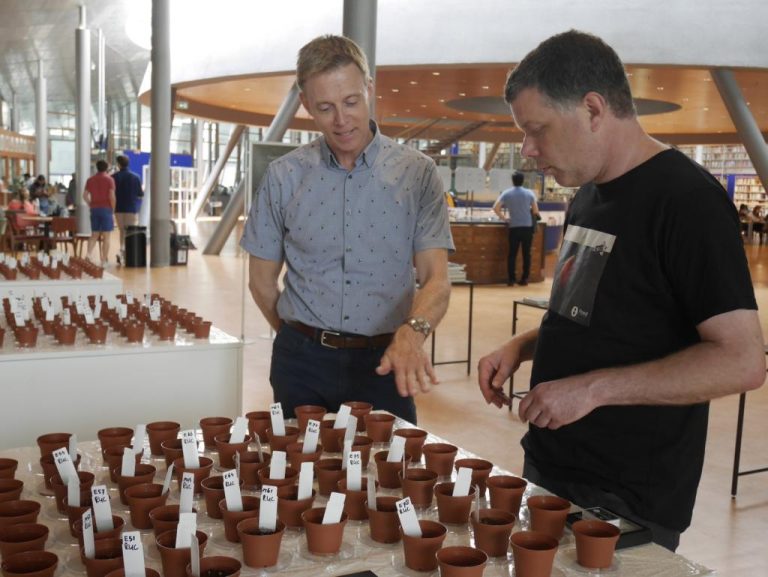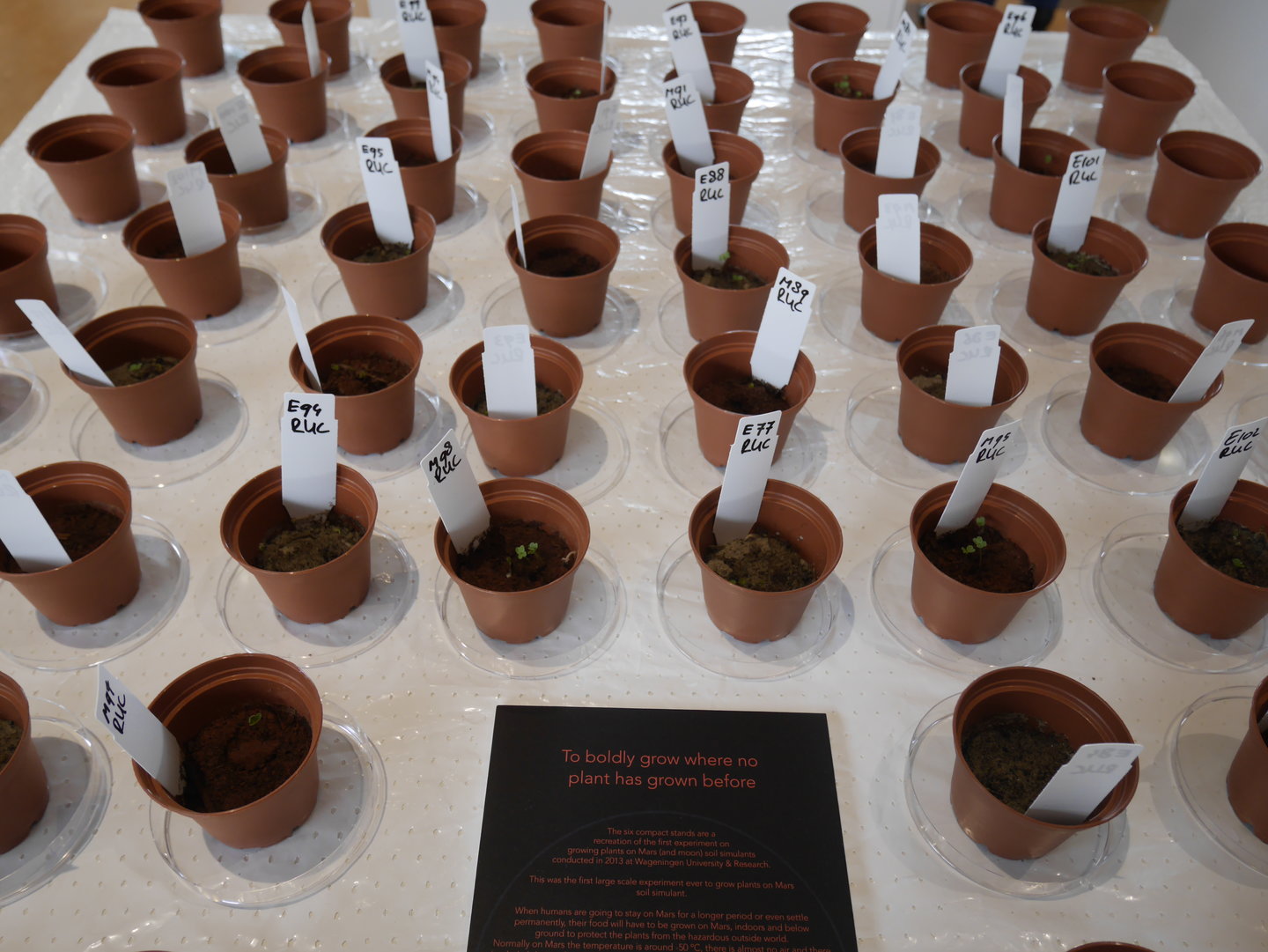Exobiologist Wieger Wamelink from Wageningen University has shown that growing crops on Martian soil seems possible. Now a sample of his experiments is being shown at the exhibition Food for Mars at the TU Delft Library.
Exhibition Food for Mars.
“Colonising the Solar System and beyond is the only way for the human species to survive.” This is what exobiologist Wieger Wamelink believes, and he is using his expertise on soils to make sure that future pioneers will have a healthy and tasty diet. The researcher from Wageningen University is studying how to grow plants on Mars and the Moon and has already run several successful experiments.
Wamelink presented his findings at an open lecture given on Thursday, June 7, preceding the inauguration of the exhibition ‘Food for Mars’, an installation in the TU Delft Library hall that shows rocket salad and garden cress growing in Martian soil simulant.
The composition of the soils of the Moon and Mars is well known, thanks to measurements from rovers and remote sensors. However, it is not possible to get large enough real samples, so Wamelink uses NASA soil simulants from the Arizona desert and volcanic areas in Hawaii to cultivate plants.
Although his expectations were low at the beginning, the plants responded well to this special soil. During his first experiment, he planted 4200 seeds, hoping that at least a few would germinate. To his surprise, most of them did, and some even flowered.
In the second and third experiments he added organic matter as fertiliser, which on the Moon and Mars would consist of inedible parts of previous harvests and human excrement. At the end of the last experiment, he was able to invite his sponsors (the research is funded through crowdfunding) to taste a meal of radishes, potatoes, tomatoes, green beans and other crops from his lab.
‘By 2030 I will have done every possible experiment on Earth’
“On a foreign planet we would be vegetarians,” explained Wamelink. The most efficient food to grow would be potatoes, as Mark Watney did in the movie ‘The Martian’. “Potatoes need little space, grow fast and are very nutritious.” But Wamelink emphasised the importance of having tasty ingredients, too. “Rocket salad is inefficient to cultivate, but it gives a bite to your meals.”
In his current experiments he is trying to cultivate new crops such as peanuts, which could be used as a source of oil, and soya beans, which would also produce plant-based milk. “With potatoes, rye and water, you could even make Martian vodka!”
The next step in his research is to create a sustainable agricultural ecosystem that will include at least bacteria, fungi, plants, bumblebees and humans. He has already confirmed that worms can survive in simulant soil, and he is convinced these animals will be very useful in this ecosystem: they bring organic matter into the soil and dig burrows, which makes it easier for water, oxygen and roots to get into the dense soil.
 Wamelink (right) at the exhibition ‘Food for Mars’. (Photo: Maria Rubal)
Wamelink (right) at the exhibition ‘Food for Mars’. (Photo: Maria Rubal)
After creating and testing this ecosystem, he wants to run a long-term experiment for at least five years, to make sure the soil can be reused without becoming toxic. Finally, his most ambitious project is to build an underground hub that recreates the exact conditions on Mars and test the ecosystem there.
Due to the low temperature, the strong solar radiation and the lack of air on the surface of the red planet, cultivating vegetables there would only be possible in a controlled environment. Wamelink suggests an underground greenhouse, buried at least one meter below the surface, where temperature, light and air could be controlled.
“By 2030 I will have done every possible experiment on Earth,” he added, so the last step will be to try and grow plants on Mars and the Moon.Wamelink expects humans to arrive on Mars before 2040. “It is extremely important to start cultivating on Mars as soon as possible, as the results are unpredictable.
- Food for Mars, 5 June – 9 July, Hall Library TU Delft.
Maria Rubal / science editor



Comments are closed.